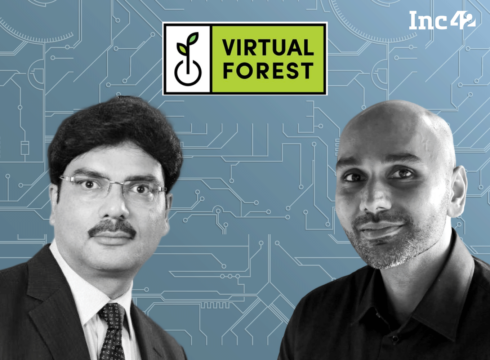SUMMARY
The controller prototypes will be ready by the third quarter of 2023
The EV motor controller is still in its design stage and is expected to enter the commercial production stage by the end of 2024
The startup said that its next fundraise should help it with a runway of 24 months, ramp up its R&D capability and widen its talent pool
Inc42 Daily Brief
Stay Ahead With Daily News & Analysis on India’s Tech & Startup Economy
In sync with the government’s vision to boost the electrification of vehicles and manufacture associated components in the country to boost the EV ecosystem, Bengaluru-based electronics design startup Virtual Forest has now started to develop ASIL-certified motor controllers for electric three-wheelers in partnership with Israel-based Redler Technologies.
The companies have received a $4 Mn grant from the Global Innovation & Technology Alliance (GITA) to develop the component.
The grant is part of the India-Israel Industrial R&D and Technological Innovation Fund (I4F), a cooperation platform between the Indian government’s Department of Science and Technology (DST) and the Israel Innovation Authority (IIA), the Government of Israel.
Virtual Forest is infusing $1 Mn in the project and receiving $1 Mn each from DST, IIA, and Redler Technologies.
“In our 24-month journey, we look at developing this future-ready controller for electric vehicles in light logistics space,” Sandeep Kejriwal, COO and CFO of Virtual Forest told Inc42.
“While the EV ecosystem is maturing, we are now working on a design which meets international safety standards. This is a big step forward for a startup like ours where there is a recognition of our design capability,” Kejriwal added.
However, it was not easy for Virtual Forest to receive this grant. Kejriwal explained that the startup had to submit a very comprehensive proposal and go through rigorous audits by professors from IIT and IISC. Its Israeli design partner Redler Technologies, too, had to go through the same rigorous process.
“We are one of the few Indian startups to have been approved by the DST, without affiliations to academic institutions or large corporate bodies. Moreover, we have been awarded the maximum applicable grant amount,” said Omer Basith, the CEO and cofounder of Virtual Forest in a statement.
Basith told Inc42 that the EV motor controller is still in its design stage and is expected to enter commercial production stage by the end of 2024.
“There is going to be a significant design and development cycle followed by a very long certification and trial cycle associated with this,” said Basith. He added that the controller prototypes will be ready by the third quarter of 2023.
Founded in 2019 by Kejriwal, Basith, Nazir Tolagi, Ravi Sajjan, and Gajanana Palkar, Virtual Forest has expertise in motor control electronics and human interface technologies. In its early days, the startup was largely focussed on the home appliances segment, particularly in air conditioners.
In the EV space, the startup has already built a motor controller, Rayon 70A, for electric two- and three-wheelers in collaboration with Redler Technologies. It claims that the controller is half the size of the Chinese controllers, and can power motors up to 6KW, delivering 15%-20% extra range, and operate in a temperature range of -40°C to 85°C.
With its latest project to develop an ASIL-certified EV motor controller for three-wheelers, Virtual Forest is looking to foray into the sunrise space of electric mobility.
The startup has picked the light logistics segment because it sees certification gradually becoming mandatory for controllers for these vehicles, which is already mandatory for the four-wheeler segment.
“Currently the ecosystem is dependent on importing controllers from China and other countries, which are not ASIL certified,” Kejriwal said. With this project, Virtual Forest also caters to the government’s priorities such as ‘Make in India’, carbon emission reduction, and others.
What’s Next For The Gamechangers
Virtual Forest last raised funds in a Seed round in 2020 from Napino Auto & Electronics. So far, it has raised no institutional funding but is in active talks to raise its next round of around $5 Mn in the next few quarters.
The startup said that its next fundraiser should help it with a runway of 24 months. It would use the new funding to ramp up its R&D capability and widen its talent pool.
“While we found ways for us to fund our growth and development through our revenues from appliance business, and also through grants and other projects in the EV space, we believe that we need to expand at a quicker pace,” said Basith.
With the home appliances market currently being its biggest source of income, Virtual Forest is aiming to clock a GMV of about INR 150 Cr by the end of FY23. It is also targeting a GMV of INR 400 Cr in the next fiscal year.
Helped by the Indian government’s policies around EVs and startups in the space, the domestic EV market is projected to grow at a compound annual growth rate (CAGR) of 49% between 2022 and 2030, hitting 1 Cr units of annual sales by 2030 while creating 5 Cr direct and indirect jobs, as per the Economic Survey 2022-23.
In 2022, 0ver 10 Lakh EVs were registered across vehicle segments, which was led by two- and three-wheeler adoption. The number has almost touched the 1.5 Lakh mark this year.
Note: We at Inc42 take our ethics very seriously. More information about it can be found here.


